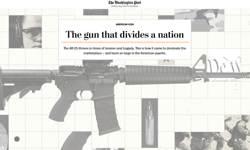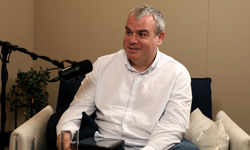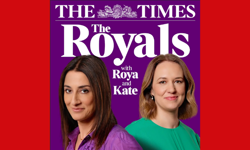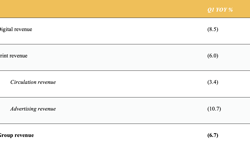This year has already been one of huge change for the BBC and the media as a whole, says the Society of Editors. They face major funding challenges as well as an on-going technological revolution that requires new ways of serving increasingly sophisticated audiences.
The BBC agreed a new six-year licence fee settlement with the Government in October last year, which saw a freeze in the licence fee and a number of new funding responsibilities from 2014, including the World Service. This will lead to a cut of at least 16% in the money available for existing BBC services.
Now, as it looks at how to manage this, the BBC that is admired and emulated around the world faces a debate about how its public service broadcasting role should be defined in a multi-media world, in order to best serve the licence fee paying public.
Lord Patten (pictured), former Cabinet minister, the last Governor of Hong Kong and chancellor of Oxford University, will apply his wide and diverse experience to address issues that will affect the BBC and the UK’s media over the next decade.
He follows a distinguished list of SoE lecturers who have included Alexander Lebedev, Paul Dacre, Gavin O’Reilly, Sir Christopher Meyer and Ben Bradlee of the Washington Post.
The lecture will open and set the scene for the conference that has the title Magna Carta II – A modern Media Charter
Based at Runnymede on Thames on the edge of London where King John signed the Magna Carta in 1215, the conference will focus on media freedom and its role in a democratic society.
The conference is always a hub of media discussion, strategy and vision that has become one of the major events in the media calendar. The conference will focus on the experience of editors across all sectors of the media, explore best practice and the best ways of ensuring the media’s freedom to serve audiences in the 24-hour, global media age of the internet.
Current president of the Society of Editors is Robin Esser, Executive Managing Editor of the Daily Mail. He is due to be succeeded by vice president Francesca Unsworth, Head of Newsgathering at the BBC.
Esser said: “Lord Patten faces one of the biggest tasks in the UK media, defending the independence of the BBC while satisfying politicians who ultimately control the purse strings that the corporation is meeting the demands of its licence fee-paying audiences.
“With his unique experience on both sides of the public spending balance and of diplomacy, confronting human rights and freedom of expression issues, his lecture will be apposite to all of the concerns that will be at the top of the media agenda this autumn.”
It will take place on the evening of Sunday November 13 and the Magna Carta conference will continue until Tuesday morning November 15. At the Runnymede-on-Thames hotel at Egham.
The venue is alongside the Thames near Windsor Castle – and the M25 and Heathrow - near to where King John signed the Magna Carta in 1215.
The conference will focus on freedom – freedom of the media and freedom of expression for everyone.
King John made peace with the barons who threatened his rule and made a start on giving us the freedoms that we treasure and most of the world admires.
In the intervening 800 years the people have gradually taken over the rights so reluctantly granted to the barons and embellished them into a blueprint for civilised democratic societies.
But perhaps these hard won rights are too often taken for granted and so they are eroded. Certainly media freedom is threatened from many directions by those who seek to control it or resent its ability to stand up for readers, listeners, viewers, bloggers and tweeters.
Magna Carta guaranteed trial by jury, created inquests into sudden deaths and provided for habeas corpus – no imprisonment without good reason and the publicity necessary to prevent it.
All of those are being debated again in 2011 for a variety of reasons and the media which has developed a special and vital role in democracy still has no formal guarantee of freedom to match America’s First Amendment.
The Society of Editors’ conference is always a hub of media discussion, strategy and vision that has become one of the major events in the media calendar. The conference will explore the experiences of editors across all sectors of the media, examine best practice and the best ways of ensuring our freedom to serve audiences that have become increasingly sophisticated in the 24-hour, global media age of the internet.
Monday 14 November will be given over to working sessions on numerous topics with time in between to meet friends old and new. The annual gala dinner will follow in the evening for hundreds of media guests. The conference will wrap up with the Tuesday morning 20-20 Vision breakfast seminar and the incoming president’s address.
Book online from 16 June www.societyofeditors.org, by email or by telephone (01223 304080). Early bird and group discounts for regional members apply until 31 July.










